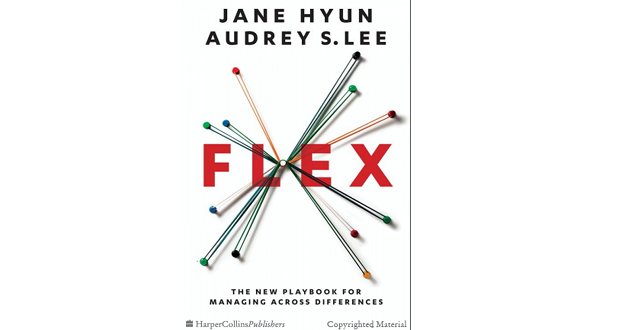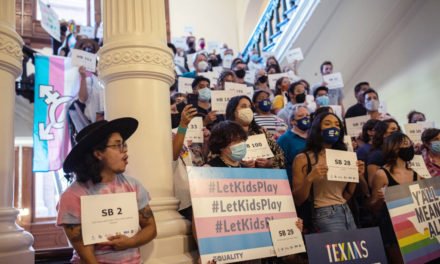
Capitalism has evolved over time with structures and business models rooted in enslavement and colonialism. As an insidious system that prioritizes profit over everything, we can feel the ways in which capitalism courses through our veins and determines how we live.
Capitalism has evolved over time with structures and business models rooted in enslavement and colonialism. Click To TweetToi Smith – a mother and entrepreneur who holds space for Business for the People and expands thinking around Business Beyond Profit – orients her conversations about capitalism through a lens of feeling:
“Capitalism feels like having your head stuck in the mud and trying to breathe. It feels like having too many responsibilities and not enough time, too many bills and not enough money, too much stress and not enough rest, too much pain and not enough joy. Capitalism feels like not having autonomy over your own life.”
As such, capitalism takes us away from ourselves and each other.
Capitalism thrives on hierarchy, competition, control, exploitation, and power-over – and it cannot be separated from other systems of oppressions such as racism, heteropatriarchy, and ableism. Brené Brown outlines power-over as leveraging fear and shame, believing that power is finite and needs to be hoarded and rooted in dehumanization. Power-over reinforces capitalism, which has detrimental impacts on everyone, especially LGBTQ+, BIPOC, immigrant, low socio-economic status, disabled, neurodivergent, and incarcerated communities. In fact, “The stress of belonging to hierarchies itself is linked to disease and death” – further exacerbated when one falls on the lower end of the hierarchy, impacted by intersecting systems of oppression.
Capitalism thrives on hierarchy, competition, control, exploitation, and power-over - and it cannot be separated from other systems of oppressions such as racism, heteropatriarchy, and ableism. Click To TweetWhile the impact on community (mental) health continues to intensify, burnout has become standard in this VUCA world. Burnout is not an individual issue with individual solutions. Burnout is systemic within the way work is structured – high urgency, heavy workload, prolonged stress, lack of recognition and support, and not enough space for rest, rejuvenation, and connection. In order to alleviate burnout and achieve well-being and balance, we need to reimagine how we work and prioritize self-actualization over self-optimization.
In order to alleviate burnout and achieve well-being and balance, we need to reimagine how we work and prioritize self-actualization over self-optimization. Other ways of living and working are possible. Click To TweetOther ways of living and working are possible.
Imagine a world in which pleasure, fun, rest, connection, and love are centered. A world in which you have autonomy over your body, your mind, your life, and your time. Where our towns and cities are oriented toward nature and sustainability and community and possibility. Where education is an opportunity to learn and reimagine and think critically. A world in which our work is of our own accord, human-centered, and community driven.
As an alternative to power-over, power-with offers possibilities of collaboration, connection, and humanity through empathy-driven agendas, policies, and values. Integrating power-with into our workplaces would further humanize how we work and how we are able to show up at work. Our whole selves should be considered and supported in the workplace – everything from our emotional well-being, to our familial matters, our mental and physical health, our identities and self-expression, and our ways of thinking and being. Our workplaces should be structured around the realities of the human experience, rather than forcing workers to take on the exploitable form required to merely survive under capitalism.
Our whole selves should be supported in the workplace - from our emotional well-being, to our familial matters, our mental and physical health, our identities and self-expression, and our ways of thinking and being. Click To Tweet
Our workplaces should be structured around the realities of the human experience, rather than forcing workers to take on the exploitable form required to merely survive under capitalism. Click To Tweet
What if we structured work around the human experience?
No matter how you cut it, humans are not and will never be robots. We have needs, we have desires, we have feelings and emotions, and we have bodies and minds that need tending. Structuring work around the reality of being human would allow for ease and care to be central to our relationships with work.
Structuring work around the reality of being human would allow for ease and care to be central to our relationships with work. Click To TweetInclusive and human-centered work spaces would recognize the needs and boundaries of the people contributing their time and effort toward mutual goals. What if people with periods could take time off as needed and orient their work flow around their cycle – aligning energy and effort to make work more easeful? What if people who live with chronic illness and pain could prioritize their health and comfort over productivity and output, without having the recognition of their contributions diminished? What if our differences were seen as opportunities for learning and growth and creating new possibilities, rather than things that need to be fixed, suppressed, or medicated? What if work wasn’t one size fits all, but was rather structured in such a way that people with different ways of thinking and doing could thrive?
Work/life integration can only be achieved through boundaries and humanization.
Work/life integration can only be achieved through boundaries and humanization. Click To TweetWhat if we approached work seasonally?
Nature – and ourselves – ebb and flow through the seasons. What if that was an accepted approach to work as well? Rather than the outdated 9-5, we could work longer hours when it aligns with our flow, and we could ebb when we needed to rest and focus our attention elsewhere. Making work flexible integrates the nuance of life. We have different needs day to day, and we should be able to approach each day as we need.
Some seasons may be higher energy and filled with collaboration and creativity, and others may be slower and filled with care and rest and community. What a beautiful opportunity for us all to support each other, exactly as we are, with no attachment to being the same each day.
Movements toward a 4-day work week are underway in some places, although that is just one possible way of addressing how much and when we work. Deconstructing time and form and structure could allow us to imagine new possibilities.
What if we oriented work around family and community life?
It is not possible to leave parts of the self behind, no matter how hard workplaces try to silo the personal and the professional. People have children, are expanding their families, caring for family members, navigating loss and/or trauma – all of which was highlighted during the pandemic, demonstrating that people are part of an interconnected ecosystem that cannot be separated, or forgotten, in the workplace. As such, our workplaces need to support the whole person, which extends to those ecosystems.
It is not possible to leave parts of the self behind, no matter how hard workplaces try to silo the personal and the professional. People have children, are caring for family members, navigating loss and/or trauma. Click To TweetThriving wages (and equitable business/economic models); flex time for daily family, community, and civic engagement matters; universal healthcare (rather than employee-sponsored); affordable childcare, housing, transportation, and nutritious food; remote and hybrid work options; paid time off for pleasure, illness, mental health, grief, and rest, and guaranteed paid family leave are a few ways people could be better supported in the workplace. The U.S. is behind global trends in offering inclusive (particularly in definitions for family) and expansive (particularly in when paid leave can be taken) guaranteed paid leave for all caregivers.
When our work supports our life, we are able to show up more fully.
What if we integrated empathy, pleasure, and play into our work lives?
adrienne maree brown expresses that, “There is no way to repress pleasure and expect liberation, satisfaction, or joy.” Our work should not suppress pleasure, nor should it create a deficit mindset that implies that pleasure/fun/joy and work are mutually exclusive. Our work – and ourselves – would benefit from pleasure and opportunities for joy and play and creativity.
Imagine if our work experiences were rooted in radical love and joy and ease and connection. Work could be a pathway toward, not away from, these forms of embodiment. When we show up vulnerably with radical-self love, we offer others an invitation to show up vulnerably as well. Vulnerability in the workplace is not equitably safe, but in a human-centered workplace, vulnerability could be a form of connection and affirmation, and has the potential to deepen our empathy for those we are in community with.
Imagine if our work experiences were rooted in radical love and joy and ease and connection. When we show up vulnerably with radical-self love, we offer others an invitation to show up vulnerably as well. Click To TweetSonya Renee Taylor offers that “radical self-love demands that we see ourselves and others in the fullness of our complexities and intersections and that we work to create space for those intersections.” All of ourselves and our intersections belong at work – we should not be required to show up as anything but who and how we are in any given moment. What if we could collaborate more effectively, think more creatively, and expand beyond our wildest dreams by showing up fully human in the workplace?
Embracing the nuances of the human experience in the workplace will bring us closer to humanizing our work, humanizing ourselves, and humanizing our world.
Embracing the nuances of the human experience in the workplace will bring us closer to humanizing our work, humanizing ourselves, and humanizing our world. Click To Tweet

















